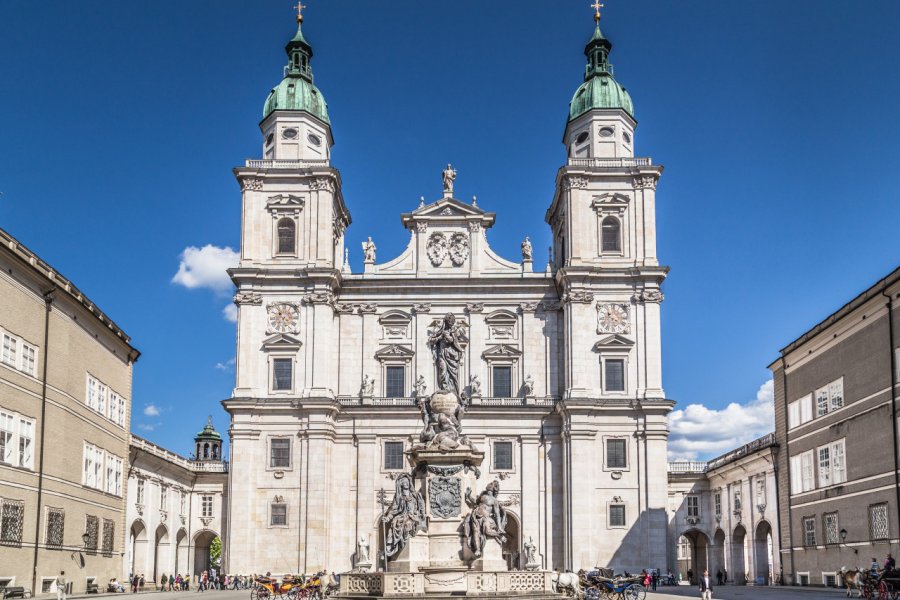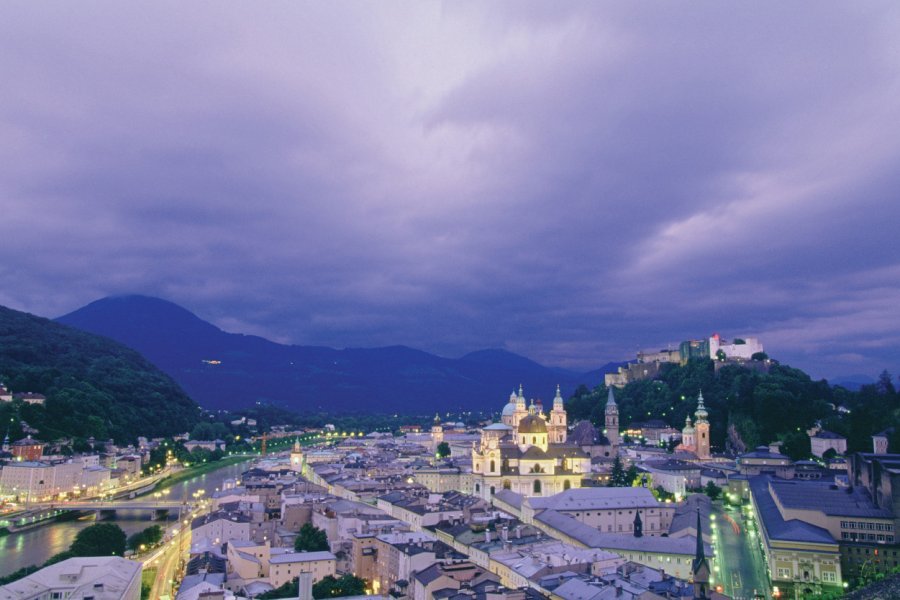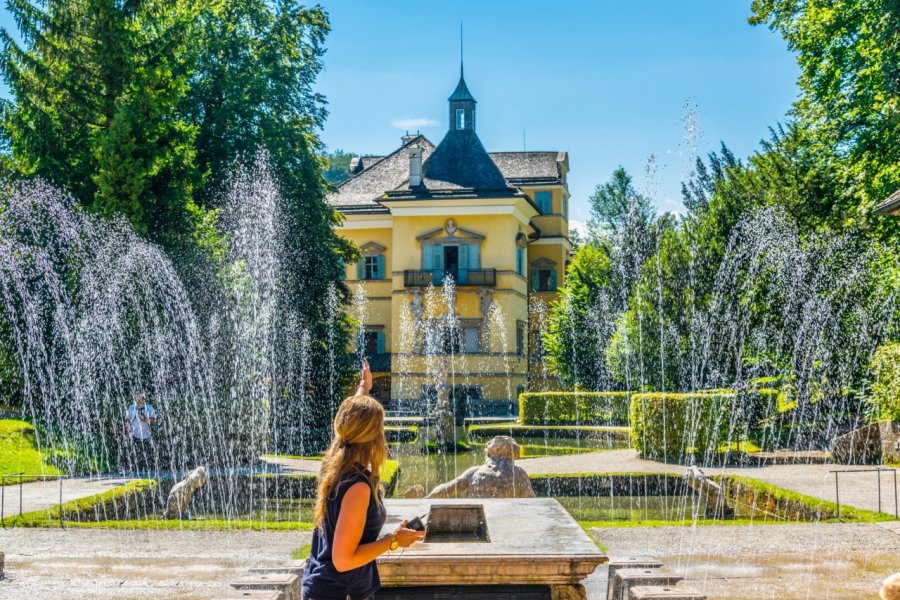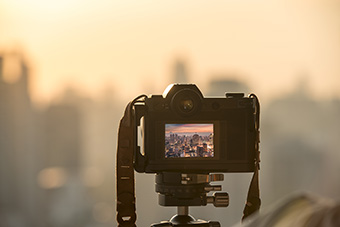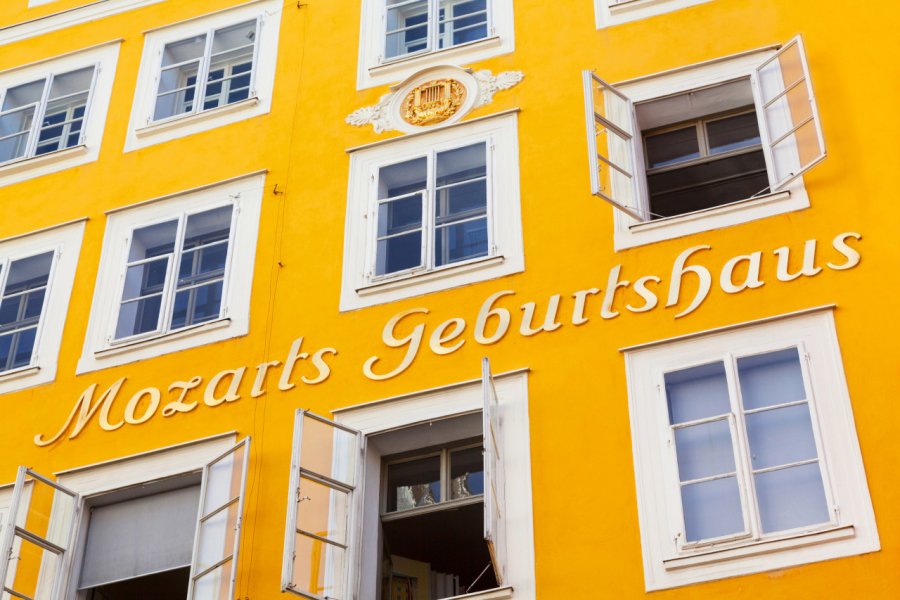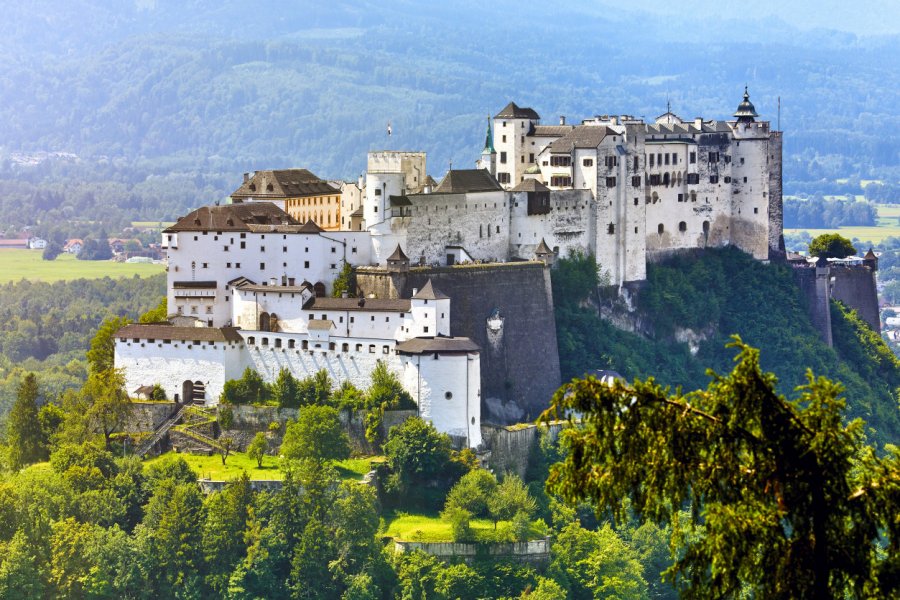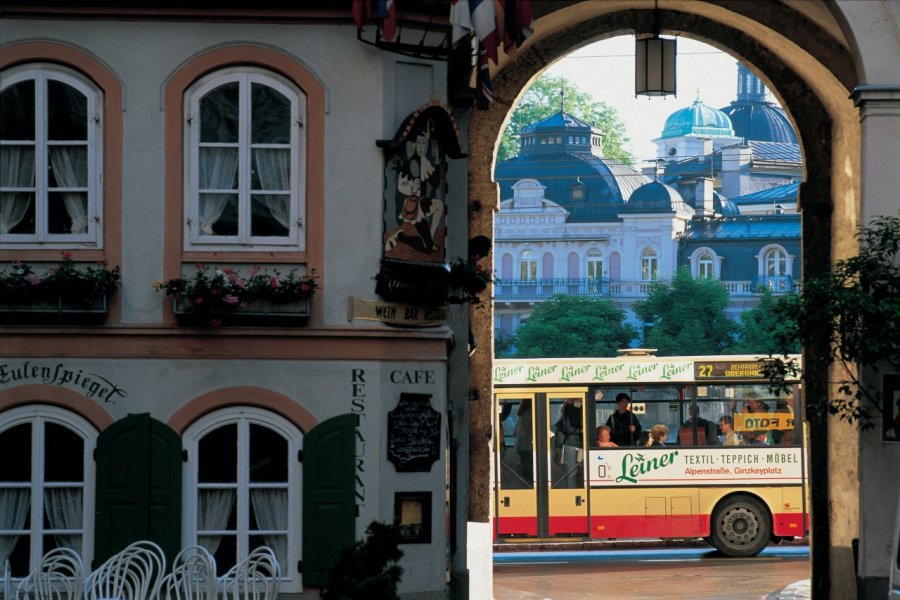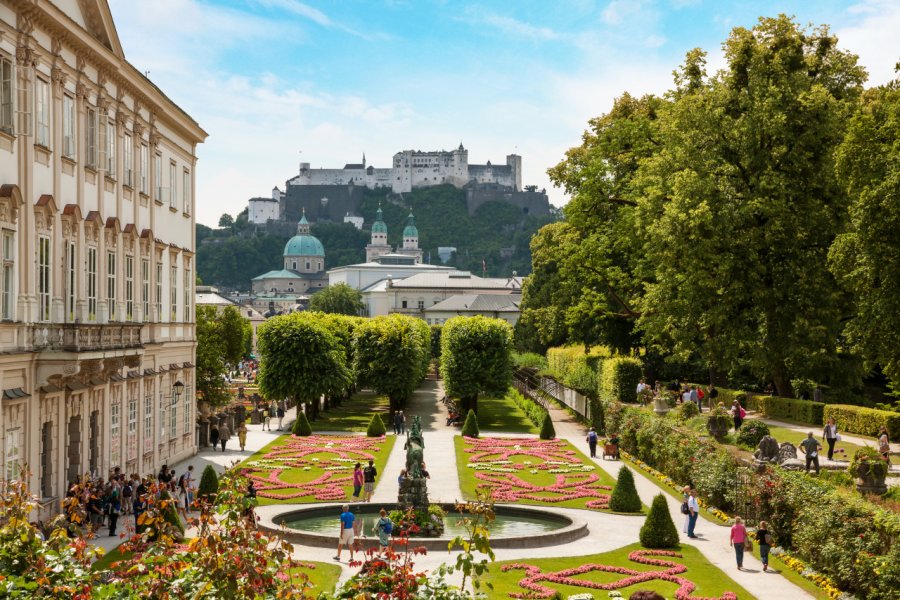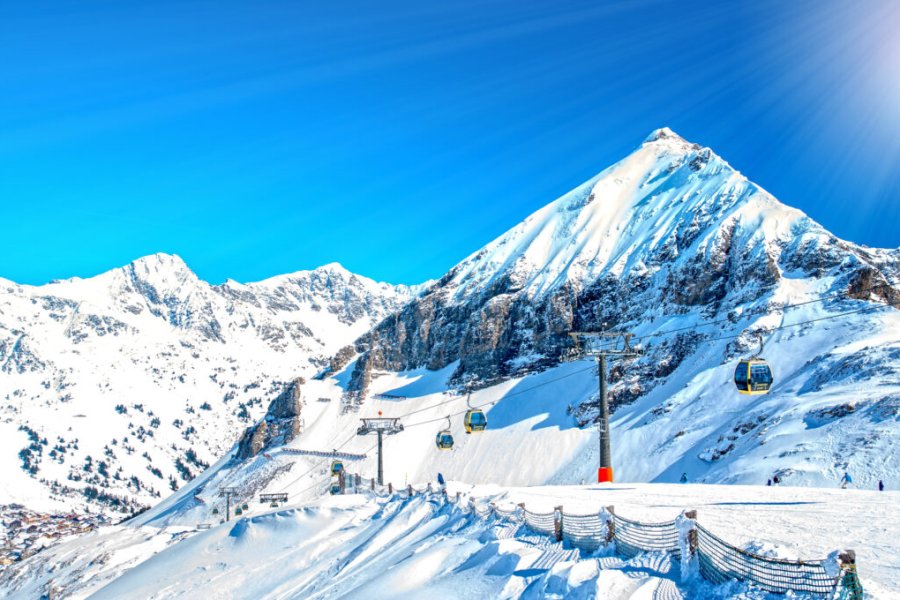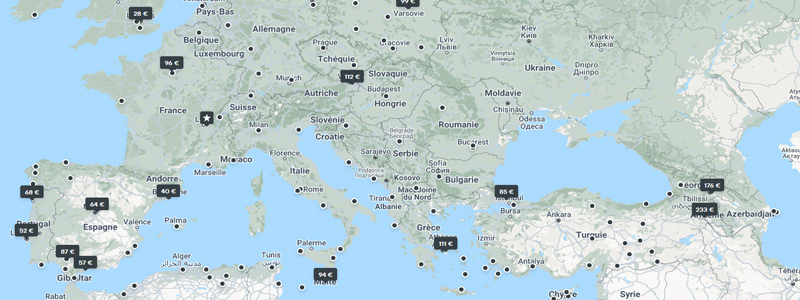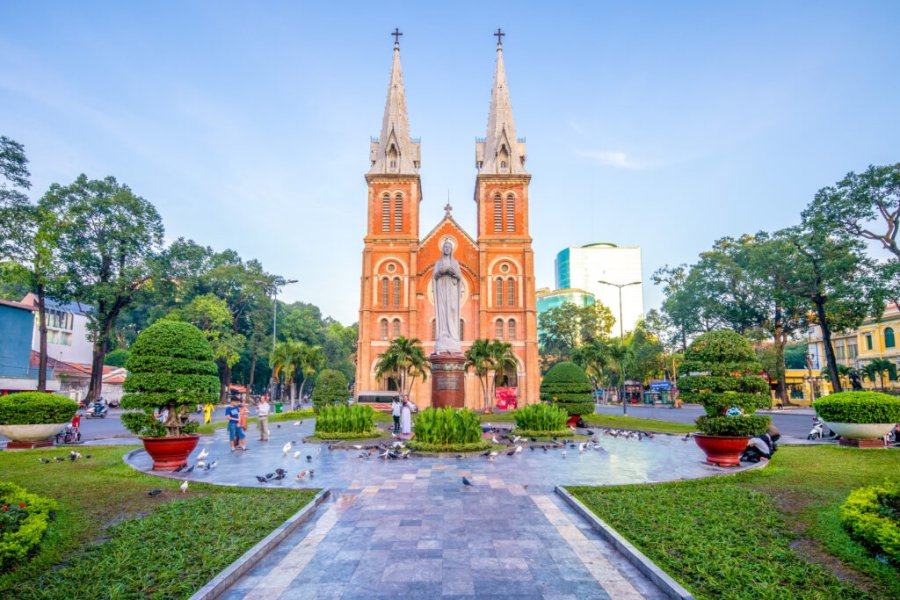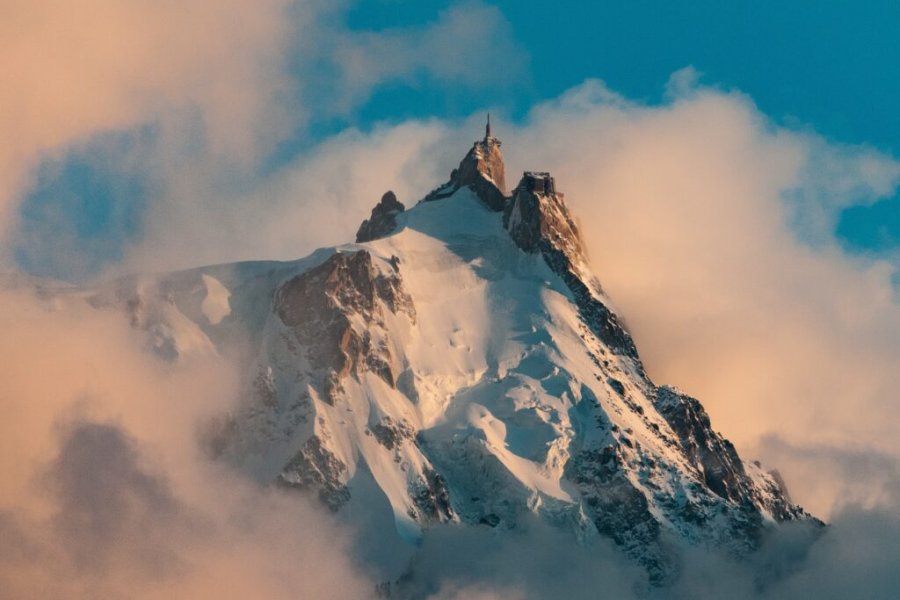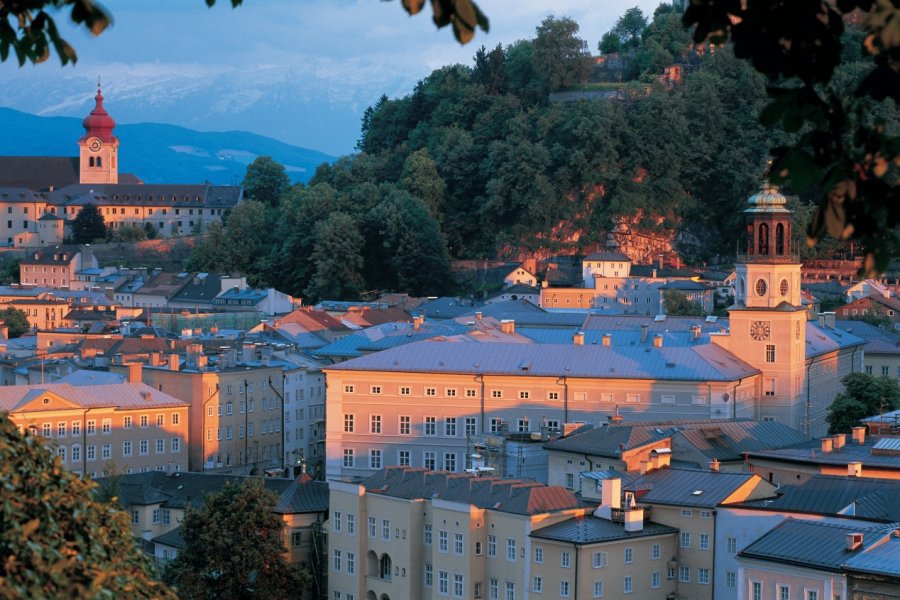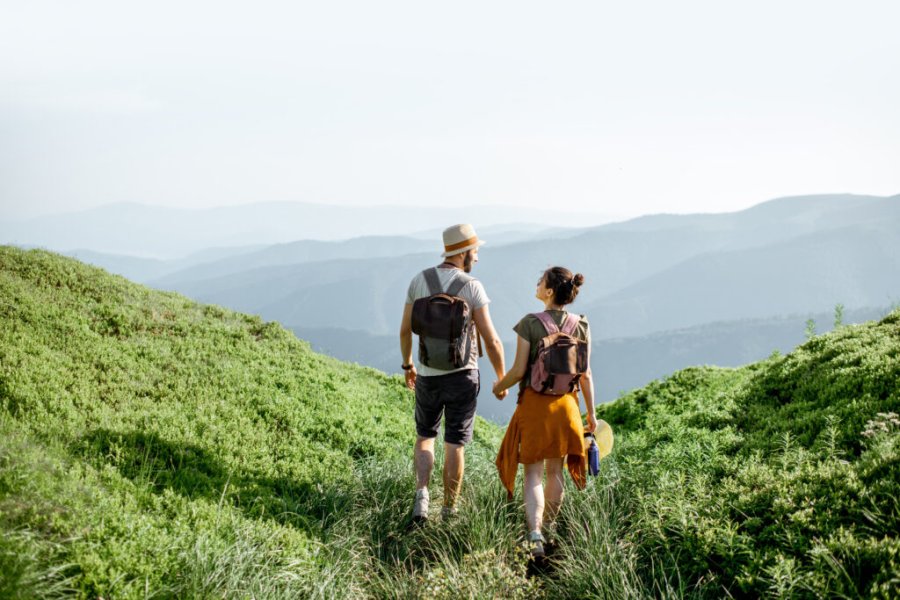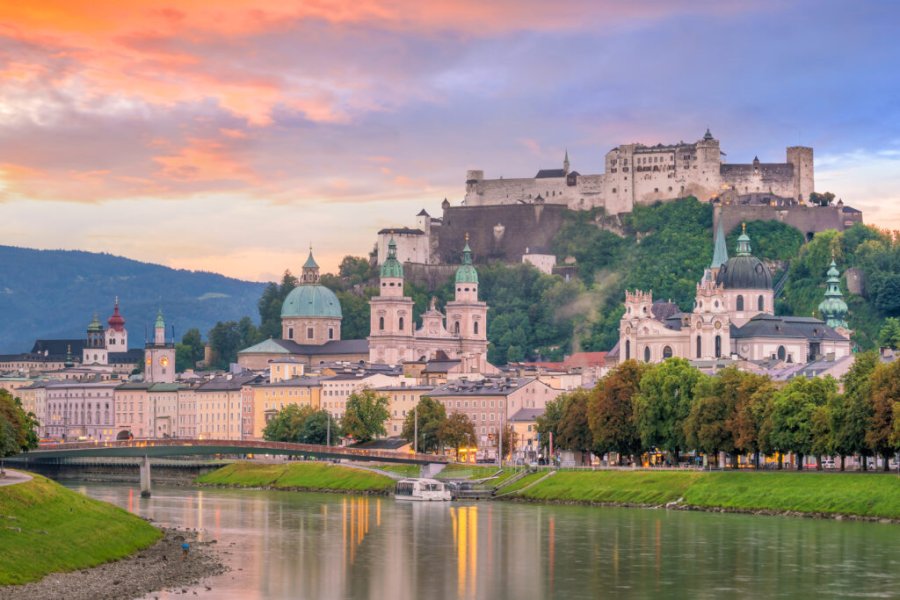Travel Guide Salzburg
Salzburg nestles in the majestic Austrian Alps. It's a city of timeless charm. This city, pronounced Salzburg in the language of its inhabitants, is a living testimony to history, music and magnificent landscapes. The city's rich architecture dates from the Middle Ages to the 19th century, and bears witness to its past as a city-state. Its Gothic splendor and Baroque brilliance, the legacy of architects Scamozzi and Solari, echo its child prodigy, Mozart. This north-south fusion of Europe makes Salzburg a city of art, music and culture, famous for its summer classical music festival. A must-see in Austria, Salzburg is attractive all year round, despite the summer rush and the ever-present bells. Discover Salzburg's finest hotels, restaurants and sights with the Salzburg Travel Guide.
Salzburg's strategic position on the border with Germany means that the city speaks more German than any other. This geographical position has established it as an important crossroads of trade since the Middle Ages. Its rich historical roots are palpable at every step in the old town, which is a UNESCO World Heritage Site. The imposing Hohensalzburg Fortress dominates the city, offering superb panoramic views of Salzburg and the surrounding mountains. The city's musical past is embodied by Mozart's Birthplace, which invites visitors to immerse themselves in the world of the famous composer and explore 18th-century Salzburg.
Further exploration reveals the Hellbrunn Palace with its mischievous water features and the Salzburg Zoo, nestled on Hellbrunn Hill. The Catacombs of St. Peter, carved into the cliffs of the Mönchsberg, bear witness to the city's religious past.
Gourmet delights also have their place in Salzburg. The Mozart balls, chocolate pralines topped with pistachio marc, are a must. The city's traditional cafés, meanwhile, serve divine Austrian pastries in the warmest of atmospheres. For a touch of romance, a stroll through the Mirabell Gardens is a must. And for music lovers, the Salzburg Festival, which takes place every summer, is a must. It brings togetheropera lovers and music aficionados from all over the world. Rich in history, culture and natural beauty, the destination's unmissable sights are an ode to wonder!
What to visit Salzburg?
When to go to Salzburg?
The Baroque city of Salzburg, Austria, takes on a different face depending on the season. Each time of year reveals unique facets of this magnificent Alpine city, making the question of when to visit Salzburg a key one When to visit Salzburg? A real dilemma for travelers.
Spring (March to May): if you travel to Salzburg in March, you'll witness the awakening of nature. April also marks the start of the spring festival season, including the Salzburg Easter Festival. Art and music lovers will be delighted, especially as prices are still low and crowds are moderate.
Summer (June to August): this is undoubtedly Salzburg's peak season. If you choose to go in July, you'll have the chance to attend the renowned Salzburg Festival, a major event for opera, theater and classical music enthusiasts. August is punctuated by various sporting events, including the Red Bull X-Alps, an adventure race combining paragliding and hiking.
Autumn (September to November): a visit to Salzburg in October is an unforgettable experience. Experience Salzburg Culture Days, a festival celebrating art in all its forms. October, meanwhile, is popular with hikers looking to immerse themselves in the golden hues of the season.
Winter (December to February): the best time to visit Salzburg for winter lovers is undoubtedly December. Christmas markets light up the city, while the Mozart Week in January celebrates local genius with concerts and performances. For sports enthusiasts, February is the time to enjoy winter sports in the nearby mountains, with many events and competitions taking place nearby.
Weather at the moment
Salzburg enjoys a continental climate, characterized by cold winters and moderately hot summers:
During the high season, from June to August, the temperature in Salzburg fluctuates between 20°C and 25°C, making the city ideal for sightseeing. However, it's also the busiest time of the year;
The off-season, from December to February, features much colder temperatures, often below 0°C, making for an enchanting winter landscape.
If you prefer a quieter atmosphere and milder temperatures, consider visiting Salzburg in spring or autumn. Whatever the season, this iconic destination remains a feast for the senses.
Salzburg is recognized as a relatively expensive destination, in line with European standards. The official currency is the euro, and its stability is assured within the EU. Credit cards are widely accepted in most Salzburg establishments. However, a little cash can be handy for small shops and local markets. Currency exchange is readily available in the city. If you're traveling on a budget, Salzburg offers affordable hostels and meals, but expect simple services. For more comfort, you'll find mid-range hotels and restaurants offering good value for money. Finally, Salzburg excels with Michelin-starred hotels and unforgettable gastronomic experiences. Finally, it's customary to leave around 5-10% of the bill in restaurants, depending on your satisfaction, as a tip.
Preparing a trip to Salzburg requires knowledge of the administrative procedures involved in entering Austria. As a member of the Schengen Area, Salzburg is accessible without a visa to citizens of theEuropean Union (EU) and the European Economic Area (EEA) for short stays. All you need is a valid passport or identity card.
For travelers outside the EU/EEA, formalities vary. Many countries benefit from visa exemptions for stays of up to 90 days in the Schengen zone. If a visa is required, please contact the Austrian embassy or consulate in your country of residence.
A visa for Salzburg does not exist as such, since formalities are carried out for the entire Schengen area and not for the city itself. However, it's always a good idea to keep abreast of any updates to entry policies, especially in a constantly changing international context.
Before you set sail for Salzburg, there are a few health-related aspects to consider, to ensure that your stay goes off without a hitch. Fortunately, Salzburg, like the rest ofAustria, is a health-safe destination.
No specific vaccinations are required to enter Salzburg for travelers from Europe or other major international destinations. However, check that your usual vaccinations, such as tetanus and diphtheria, are up to date.
One of the advantages of traveling to Salzburg is the quality of its water. Salzburg's drinking water comes from the surrounding alpine springs. So there's no need to buy bottled water, except for convenience. Finally, as with any destination, it is advisable to take out travel insurance to cover any unforeseen medical expenses. Medical facilities in Salzburg are ofexcellent quality, but a consultation or operation can be costly for non-residents.
Practical information
- When to travel?
- Weather forecast
- Budget
- Formalities
- Health
- How to travel by yourself?
- How to get organized?
- Getting around
Media
How to go to Salzburg? Our advice & tips
Many agencies offer turnkey tours that include transportation, accommodation and excursions. These all-inclusive packages allow you to explore must-sees such as the Hohensalzburg Fortress or Mozart's birthplace, accompanied by an expert guide to enrich your experience.
By choosing an organized tour, you also benefit from optimized planning, combining cultural visits, gourmet breaks and free time. You're traveling in a group, which encourages exchanges and the sharing of experiences. What's more, tailor-made options are often available to adapt your stay to your desires.
Discover our selection of travel agencies for this destinationEmbarking on an adventure alone is an exciting Einzelspieler (solo player) experience, especially when you're looking for total immersion. By setting off on your own, you decide on your Fahrplan (itinerary) and your pace, allowing you to interact more intimately with the local culture.
Start the day with a Frühstück (breakfast) in a local café, then wander the Gassen (alleys) at your leisure. It's the ideal way to find out about places that only the locals know about. What's more, traveling alone often offers you the opportunity to be invited to share a conversation or a meal. These are invaluable moments for gaining new perspectives.
In Salzburg, the magic begins as soon as you set foot outside your home. Fortunately, getting around this historic city is child's play. Thanks to its efficient and punctual public transport network of buses and trolleys, you can reach any corner of the city in no time. For those who prefer to explore on foot, the historic center, a UNESCO World Heritage Site, is largely pedestrianized. If you want to go further afield, renting a bike is an excellent option. Salzburg is equipped with numerous cycle paths and offers unforgettable panoramic views.
Tip: consider investing in the Salzburg Card. It offers unlimited access to public transport and discounts for many tourist attractions.

